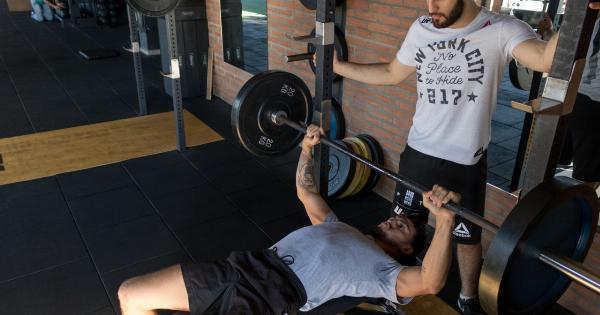Premature ejaculation is a common sexual problem that affects many men around the world. Premature ejaculation occurs when a man ejaculates too quickly during sexual intercourse, leaving both partners unsatisfied.
The issue can cause relationship problems, stress, anxiety, and even depression. Exercise is one of the most common and natural ways to improve your sexual performance and overcome premature ejaculation. This comprehensive guide will provide you with everything you need to know about exercise and premature ejaculation.
Understanding Premature Ejaculation
Premature ejaculation is a condition that occurs when a man ejaculates too soon after sexual stimulation.
There is no standard definition of premature ejaculation, but most medical experts define it as climaxing within one to three minutes after penetration.
There are two official types of premature ejaculation, known as primary and secondary premature ejaculation.
Primary ejaculation occurs in men who have had the issue since they first started having sex, while secondary ejaculation occurs in men who developed the problem after several years of normal sexual activity.
Factors That Contribute to Premature Ejaculation
Several factors can contribute to premature ejaculation, such as psychological factors, physiological factors, and medical conditions. Some common contributors include:.
Psychological Factors
- Performance anxiety
- Depression
- Stress
- Guilt
- Fear of intimacy
Physiological Factors
- Inflammation or infection within the prostate gland and urethra
- Hormonal imbalances
- Low testosterone levels
- Thyroid problems
- Erectile dysfunction
Medical Conditions
- High blood sugar (diabetes)
- High blood pressure (hypertension)
- Neurological disorders
- Cardiovascular diseases
- Fibrosis and chronic inflammation of the penis
How Exercise Can Help With Premature Ejaculation
Studies show that exercise can improve sexual performance in men, including those who struggle with premature ejaculation. Exercise affects both physiological and psychological factors that contribute to premature ejaculation.
Regular exercise can help you in several different ways:.
1. Improving Your Cardiovascular Health
Improving your cardiovascular health through exercise can help you develop better control over your ejaculation.
Cardiovascular exercise strengthens your heart and muscles and helps you to control your breathing during sex, which can reduce anxiety and stress and create a more pleasurable and relaxing sexual experience.
2. Enhancing Endurance and Stamina
Regular exercise improves endurance and stamina levels, which can result in longer-lasting sexual encounters and a reduction in premature ejaculation issues.
Exercise can also help you feel more energized and less fatigued, which can lead to longer and more satisfying sexual encounters.
3. Reducing Stress and Anxiety
Exercise can improve your mood and reduce stress, anxiety, and depression, which are common psychological factors that contribute to premature ejaculation.
Physical exercise releases endorphins in your body that produces pleasure and a sense of relaxation.
4. Strengthening Pelvic Muscles
Strengthening your pelvic muscles through exercise can help you gain better control over your ejaculation. A well-known exercise to strengthen pelvic muscles is Kegels, which involves contracting and releasing the muscles that control urination.
Kegels can help you delay ejaculation by strengthening the muscles that control the flow of semen during sex.
Exercises for Premature Ejaculation
Exercises can vary in intensity and duration, so it is important to choose a program that suits your fitness level, physical capabilities, and personal preferences. Here are some exercises that can help you overcome premature ejaculation:.
Kegel Exercises
As mentioned earlier, Kegel exercises involve contracting and relaxing the pelvic muscles that control urination. To perform Kegels, identify your pelvic muscles first by stopping and starting your pee.
After identifying your pelvic muscles, sit, stand or lie down, and contract these muscles for five seconds, then relax for five seconds. Repeat this exercise several times per day, gradually increasing the length of time that you hold your muscles. Over time, Kegels will help you gain better control over your ejaculation.
Squat Jumps
Squat jumps are an exercise that helps strengthen your lower body muscles, including your pelvic muscles. To perform squat jumps, stand with your feet shoulder-width apart and slowly lower your body into a squatting position.
Once in a squatting position, explosively jump up, then land softly on the toes of your feet. Repeat the exercise several times per day, gradually increasing the number of times you perform the exercise.
Cardiovascular Exercises
Aerobic exercises enhance your cardiovascular health, which can improve your stamina and reduce anxiety and stress. Examples of cardiovascular exercises include jogging, biking, or swimming.
Performing these exercises regularly can help you overcome premature ejaculation.
Conclusion
Premature ejaculation is a common sexual problem that can affect your sexual relationships, self-esteem, and overall well-being. Exercise is a natural and effective way to improve your sexual performance and overcome premature ejaculation.
Regular exercise can help you improve your cardiovascular health, increase endurance and stamina, reduce stress and anxiety, and strengthen your pelvic muscles. Incorporating exercises into your daily routine can help you enhance your sexual experience and overcome premature ejaculation.



























